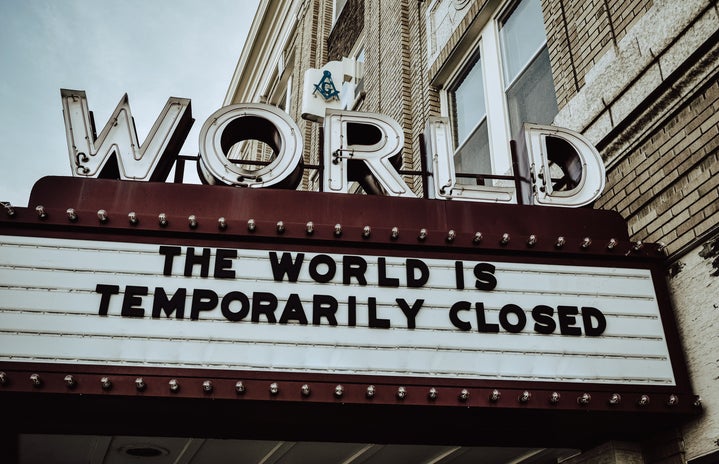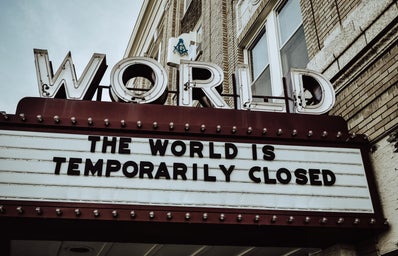World Theatre Day is here, and today we turn our attention to all the actors and actresses around the globe. We have all been consuming art during the pandemic and viewing actors as the characters they play, but now it is time to look at them in a different way – as human beings and professionals that are struggling to survive these difficult times.
Giovana Telles, 24, graduated from Dramatic Arts at the end of 2019. When the pandemic arrived in Brazil, she was in the very beginning of her career. “In 2020, I was completely lost”, she says. “I feel frustrated for leaving university at the beginning of the pandemic; on the other hand, I don’t know how it would be without the pandemic.”

Giovana tells us that she has participated in many tests, recording her acting and sending it to the producers. But she feels that this format is more demanding. Because one can film wherever they are, more people can participate. “I also think we tend not to give our best on the performance, since we can film it over and over again until we like the result”, Giovana says. She also tells that the online format has made it easier to agencies to delay the payment for the tests, or even to pay less than the agreed. “And I miss the contact with the director, the team”, she adds.
The lack of contact with people is, probably, what actors miss the most nowadays. Gabriela Elias, 44, says that “for the artist, it is despairing. We need the encounter.” She participated of an online play last year. “It is a different kind of pleasure”, tells Gabriela. “We are not with our colleagues, we don’t have the feedback from the public, we don’t even know if the person is really there, watching. It is another place, and I’m not sure where it is.”
Gabriela also says that she watched some online plays since the beginning of the pandemic. For her, the most catastrophic attempts were those that tried to reproduce the on-site performances in the virtual space, without any adaptations. She believes that some changes are necessary in this transition from the traditional format to the online one. “The online format has its value, its specificities, and it can be really good when it embraces the high tech options and language. But it is not theatre. We call it ‘online theatre’ but it’s not it. It’s something else.”
Marat Descartes, 45, agrees. “It is another communication vector, another language, and it has come to stay, although one format doesn’t substitute the other.” For him, the online format is more dispersive than the on-site performances, so it needs to stablish a more direct contact with the public in order to catch the attention.
Marat believes that this new format has helped to fill a space on the internet that was still quite empty. “There was YouTube and there were the YouTubers, but it seemed to be a place of very superficial entertainment. Now, because of the pandemic, this space is being filled with art and a more diversified content.”
But, as Giovana says, it is not easy to be productive all the time. “With the pandemic, there is a lot of pressure for the artists to produce a lot, all the time”, she says. Gabriela and Marat also say that, at the beginning of last year, they had a moment when they didn’t want and weren’t able to produce anything. “But I believe that art, in its essence, is anxiety, teasing”, says Gabriela. “Survival is inside of us.”

All the interviewees agree that the online format has made art more accessible. “It is easier for the public, many people are lazy when it comes to going to the theatre”, says Giovana. They also agree that the pandemic has shown people that art is vital for our existence. Giovana believes that, because of that, the pandemic has changed the way people look at artists such as actors. Gabriela knows people that have never consumed so much art before, but Marat, on the other hand, has heard a lot of people say that “they can’t stand watching ‘online theatre’ because they’re sick and tired of screens.”
One thing is for sure: the routine of the actors has changed a lot because of Covid-19. All three interviewees were working on projects that had to be adapted when the pandemic came. They consider themselves lucky for being able to stay home and isolated. They have had to conciliate their work with domestic tasks and family time, and have spent a great amount of time facing a screen – Gabriela even mentions having “Zoom fatigue”. After an emotional roller-coaster that still goes on, now they are more adapted to the “new normal”. Giovana, Gabriela and Marat are working on new projects, embracing the online format.

The pandemic is just another factor in the Brazilian scenario, which is tough for the arts. “Our situation has been aggravated because of this government and its retrograde, medieval, reactionary way of thinking”, says Gabriela. The truth is that actors are finding the strength to move forward in this difficult scenario, and counting especially with the solidarity of other artists. In the words of Gabriela: “It is us for ourselves”.
————————————————————–
The article above was edited by Anna Bastos.
Liked this type of content? Check Her Campus Casper Libero home page for more!



